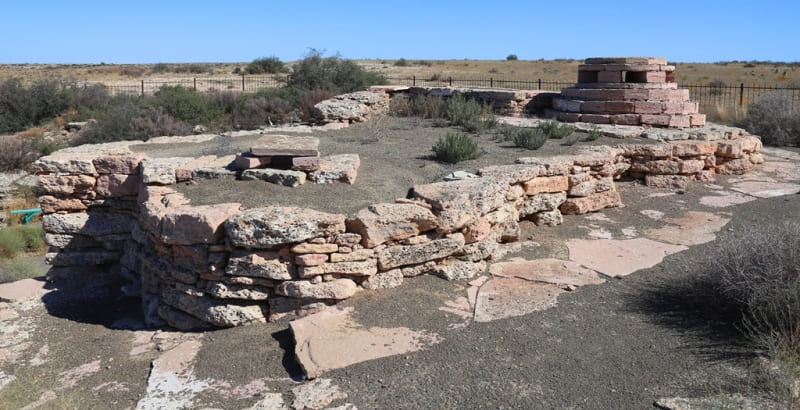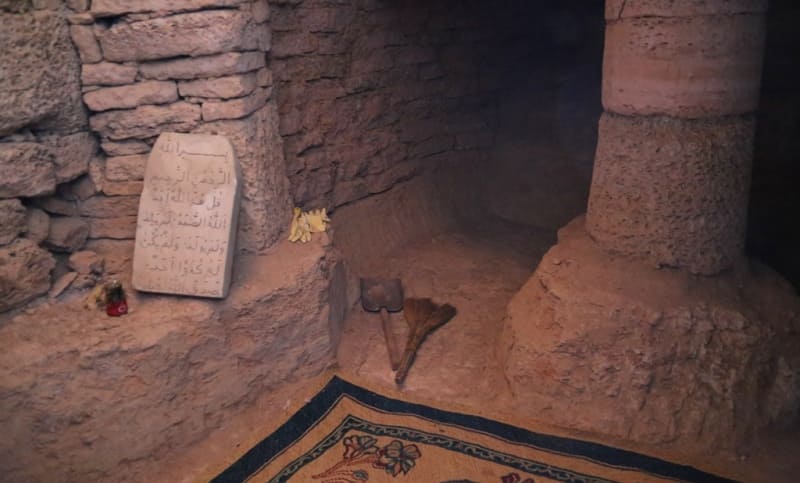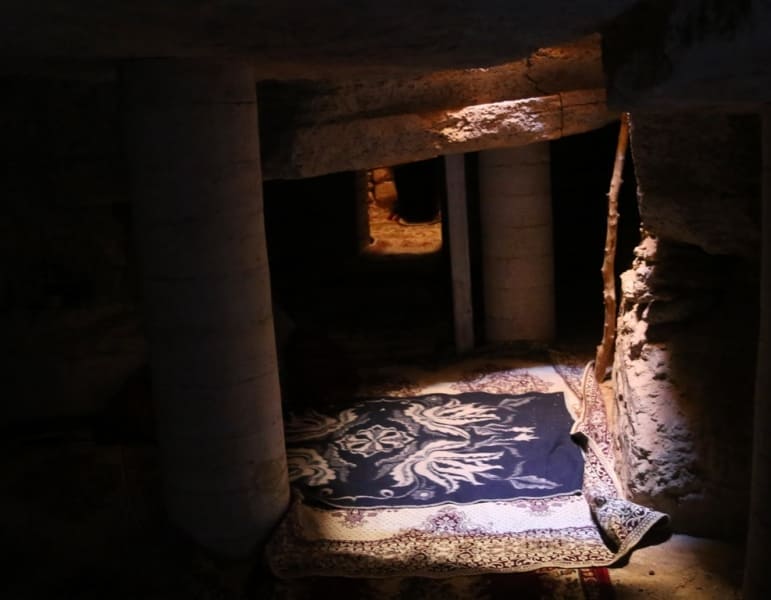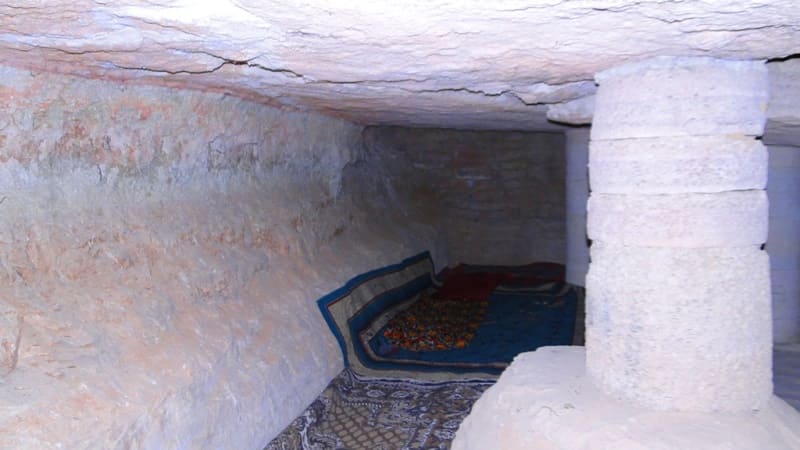You are here
Legend of Sultan Epe.

Ancient Legends of Kazakhstan.
"Adayev people, listen to my words:
Throw away bad thoughts from your memory,
Come to me with a pure heart.
Throw away bad thoughts from your memory
First you killed Rukina and Bai-Mukhammed;
Deceived them, - you will answer in the next world.
Barely ten days passed, - your troubles began.
Throw away bad thoughts from your memory!
Indignant, what could, you robbed;
Then - indignant, all hope for your mercy;
As you became a Russian wolf, you turned into a ram.
Throw away bad thoughts from your memory!"
You said, let's migrate, let's leave Mangyshlak!
You liked this pernicious thought,
And you did a bad deed
Throw out of your mind the bad thoughts!
Muhammad-Safa's appeal to Adayevites in 1870,
Legendary and Historical Personalities of Land of Mangistau.
Hakim ata's wife Anbar (Anuar) gave birth to three sons: Muhammed khoja, Asker khoja and Khubbi, called Sultan epe by the Kazakhs. The first two studied at a school located 15 days' journey from Bakyrgan, and the last son was raised at home. Hakim ata had another student in his house, named Sheikh Said, who had achieved complete perfection in the knowledge of the tariqa.
One day Hakim ata and his wife Anbar were talking in an open field, far from the city, and they began to talk about which of Hakim ata's students had improved more in knowledge, the son of Sultan epe or Sheikh Said. In order to resolve the dispute, Hakim ata called both of them by name.
An answer was heard:
- "What do you order?" and Sheikh Said appeared, but Sultan epe did not appear even at the second and third calls, but came only a few hours later and brought two deer.
- "He didn't come soon...", Hakim ata said angrily and did not want to accept the deer from him.
- "On the big sea (Caspian Sea) two ships were wrecked, the people on them were shouting:
- "Oh Sultan epe, help! I came there, saved them and at that very moment I heard your call, but since the distance was very great, I was late," answered Sultan epe.
- "I don't believe it! I know very well how far it is from here to the big sea," said Hakim ata.
- "If you don't believe me, look at my wet clothes and the marks of the rope I used to pull out the boats on my back."
Hakim Ata looked at his son's back and saw a stripe on it, caused by the friction of the rope.
- "The people I saved promised to bring ten thousand tenge as a tribute in five months, and they will bring it," said Sultan Epe.
Hakim Ata did not respond to this. Exactly five months later, the rescued people brought ten thousand tenge. Soon this incident became widely known, and everyone began to revere Sultan Epe as a man gifted by God with the ability to perform miracles.
Hakim Ata performed the morning prayer in the city mosque, and the obligatory one in Mecca, at the Kaaba. One day, Sultan Epe asked Hakim Ata:
- "Father, where do you perform the obligatory morning prayer?" - “I fly to Kaaba and pray there,” answered Hakim Ata.
- “This is disturbing for you, can’t you make it so that Kaaba comes here?” asked Sultan Epe.
- "No, I am not able to do this, but if you can, then do it.
- We'll see," said Hakim ata.
The next morning, Hakim ata entered the mosque and saw the Kaaba and many people praying near it, and there he performed the morning prayer. The residents of Bakirgan, having seen such a miracle, all became murids. One day, on the holiday of Eid al-Adha, the murids of Hakim ata gathered together, slaughtered nine bulls and ate all the meat, without a trace.
Sultan epe was not there. He came only the next day and, having learned that not a single piece of meat was left for him, asked his father:
- Why did they forget about him?
- "Whoever did the deed received his share, and since you were not there, you are not entitled to anything," answered Hakim ata.
Then Sultan Epe asked his father's murids to bring him the skins taken from the bulls they had slaughtered and their bones. When they had done this, he turned to his father and said:
- "Order these skins and bones to get up and go to the pasture."
- "I am not able to do this," said Hakim Ata.
- "Then let me do it."
Having received his father's consent, Sultan Epe exclaimed:
- "Bissimillah," gathered the skins and bones with his asa tayak (stick) in one place, and lightly struck the pile, saying:
- "By the will of God, get up!"
The bulls came to life, got up and went to the pasture. After this miracle, Sultan Epe, having said goodbye to his father and mother, became invisible. Hakim Ata searched for his missing son for a long time and everywhere, but could not find him anywhere.
When Khoja Akhmet Yassawi learned about everything that had happened, he severely reprimanded Hakim ata for his rude treatment of his son and said:
- "Let the water flow over your grave for forty years."
When Hakim ata died, he was buried near the city. Soon after, the Urgench River (Amu Darya) changed its course, destroyed the city of Bakyrgan and flowed over this place for exactly forty years. After this time, the water receded and Hakim ata's grave opened.
Hakim ata's eldest sons, Mukhamed Khoja and Asker Khoja, having learned about the disappearance of their brother, searched for him everywhere. For this, they came to Mangistau and both died there. They were also saints and worked miracles. Their graves are located near the Meret spring.
About a hundred years after the disappearance of Sutan Epe, when the Nogais were wandering in Mangistau, many kibitkas gathered in the upper part of the plain. Among the wanderers there was one molda who taught children. Among his students was a boy named Kheyrulla, weak and lame.
Every day he was beaten, at school by the molda, and at home by his parents. His comrades laughed at him and constantly offended him. In a word, his life was the hardest. One day Kheyrulla went far into the steppe, deciding to take his own life.
Tired from walking, he leaned against a large stone and, turning to God with a fervent prayer, cried a lot, beat himself on the chest, and finally fell asleep. At noon the next day, when he was still sleeping, some unknown person appeared to him in a dream and said:
- "My son! Do not cry, open your mouth."
Kheyrulla did this. The stranger put something sweet and pleasant in his mouth, which immediately brought out wisdom and knowledge in the boy. Then the stranger said to him:
- "Get up, go across the steppe and build a mosque in the place where you see the eagle sitting."
To this Khairullah replied:
- "I am a weak boy and cannot lift even a small stone."
Then the stranger said:
- "I, Sultan epe, when you lift stones, say: "O, Sultan epe! and the stones will rise with divine power and you will easily place them where needed."
After this, Sultan Epe disappeared. Kheyrulla woke up, walked across the steppe and soon saw a sitting eagle. When he came close to it, the eagle said loudly:
- "Sultan Epe!", flew up and disappeared.
Having clearly noticed where the eagle was sitting, Kheyrulla returned to his teacher. Molda, having beaten him for not appearing for so long, gave him a book and ordered him to read. Kheyrulla read without difficulty. Then Molda gave him seven more pages of a new lesson - he read them once and answered like a scholar.
Thus, the received wisdom was revealed and all the people were amazed at such a miracle. After this, Kheyrulla went into the steppe and, having come to the designated place, touched the large stones with his hands, exclaiming:
- "Oh, Sultan Epe!".
Each stone touched by the boy easily rose and fell to the place where it was needed. Thus, Khairullah built a mosque very quickly. After this miracle, Khairullah received the nickname "Sufi".
Authority:
"Collection of information about Caucasian highlanders". Legends of Adaevites about saints of Hanafi sect who lived and died in Mangyshlak". Proposed stories are written from words of Kafar Karadzhigitov, Bik-Bulat Yesekenov and Mullah Khodja-Berdy. Issue VII. Tiflis. 1873.
Sultan Epe and Khairula.
You probably remember that in the Shakpak Ata mosque there was a school where all the local children were taught. My grandfather's grandfather also studied in this school. And so he told me this story. When my grandfather's grandfather's father was still a boy, a young man named Khairula studied in this school.
He was very sickly and weak, for which everyone laughed and made fun of him. Unfortunately, people's jokes are not always kind and more than once Khairula cried bitterly when leaving for the steppe. But one day, when packs of hungry wolves were running across the cold winter steppe, and the icy sea wind did not allow even the camels to get up, the merciless peers once again decided to laugh at poor Khairula.
Murdering pitiful faces, they told the young man that a passing shepherd reported the serious illness of Khairula's mother, and that the dying woman asked the young man to come to her. Without thinking, the loving son ran out into the street and, ignoring the danger, set off on a long journey.
Only the next day, hungry and frozen, Khairula reached the village where his mother lived. But before he could enter his native yurt, the strength left the young man and he fell to the floor and fell asleep. And when he woke up and found out that he had simply been deceived, he immediately rushed back.
He hurried, despite the persuasion to wait out the bad weather, ignoring the dangers of the winter road, because he knew that the most cherished dream of his parents. And they, despite their poverty, dreamed all their lives that their son would become a learned mullah.
Khairula's path home was long and difficult, but the return journey was even more difficult. An evil wind, raising a wall of snow, tried to confuse the young man's path. The wolves were chasing the horse, maddened by fear, and the feather grass, hidden under the snow, entangled the already tired legs.
And the moment came when the driven horse fell to the cold ground, no longer able to resist the raging elements. Khairula, seeing the running wolves, was already preparing to die. As an eagle fell from the sky like a stone, and hitting the ground turned into an old man.
The aksakal raised his staff, and the elements calmed down. The sun illuminated the silver steppe, and flocks of birds rose into the sky. The old man struck the ground with his staff, and a pack of bloodthirsty wolves turned into a flock of grazing sheep.
The grandfather stroked the horse, and it rose to its feet, as if it had not had this terrible journey and fatigue.
And the old man said to the young man:
- "I have been watching you for a long time. And there are many things I like about you. I like your eagerness to learn, your desire to help people. But the most important thing I like about you is that despite the insults and grievances, you did not get angry and did not follow the lead of revenge. For this, I will make you my chosen one. Therefore, as soon as you finish your studies, build a mosque on this site." - "But how can I do this? After all, I don't have enough strength to build a mosque, let alone lift even one of these stones"
- "Don't worry about that. Remember me and with the words "Sultan Epe help" boldly begin work."
Having said this, the old man jumped up and, turning into an eagle, flew away. nd Khairula, leaving a memo on this place, hurried to the madrasah. Khairula only finished studying until spring, and all the teachers unanimously said that they themselves should learn from the young man, since he knew all the subjects better than them.
They saw Khairula off with great honors and great respect. The young man arrived at the place where he parted with Sultan Epe and began construction. And he was doing so well at this business that a month later the mosque was already standing.
And Sultan Epe himself helped him in everything in this work. Sultan Epe taught Khairula a lot during this time. And when the work was finished, Sultan Epe struck the ground with his staff in two places. And a deep well appeared in one place, and a spring gushed out in another place.
- "Here is my gift to you. A well with healing water. Whoever drinks water from it will never get sick. And the spring is to keep yourself and your clothes clean."
Since then, people began to come to the Sultan Epe mosque, some to be treated, and some to study. And everyone took water from the sacred well with them in their hands, and in their souls gratitude and tender memories of Sultan Epe and Khairula.
And women brought their things from the most distant villages to the spring for washing. Since Saint Khairula himself washed himself in this spring and washed his things in it. And the holy spring, being charged with the purity of the saint, can wash away any dirt, and make the dirtiest thing snow-white clean.
Many people were cured and educated in the Sultan Epe mosque by the sacred Khairula and his followers. But enemies and envious people can never live in peace while there are people on earth who give joy, knowledge, and health. And the sacred mosque was repeatedly raided by enemies.
But the young warriors always bravely repelled these attacks. And the enemies retreated. Arrows had not flown in the sky above the Sultan Epe mosque for a long time, the earth around the sacred temple had not drunk the blood of the wounded and killed for many years.
And the people calmed down. But the enemies, choosing the moment when only six warriors remained to guard the mosque, treacherously attacked it. For three days and three nights, the young men, hiding behind the walls of the mosque, repelled enemy attacks.
And on the fourth day, when the forces of the shaitan began to run out, and the mosque was just as innocent, they burned it down along with its defenders. Then, having destroyed it, they disappeared. But despite this, the holy place still heals people who come there for help, and six warriors make sure that enemies never appear there again.
Sultan Epe and Tolkyn.
In those distant times, when the sea king let his daughters go ashore to walk along the shore and play with the girls from the coastal villages, when he himself went ashore and took the place of an honored guest at any toi, a young man named Sultan lived in one of the villages.
His parents were famous and respected people, and the sea king very often visited them with his daughters. It often happens that young people do not notice the moment when a simple acquaintance and friendship develop into real, strong love. And so it happened.
The gazes of the Sultan and Tolkyn, one of the daughters of the king of the sea, began to meet often and they admired each other for a long time. The parents of the children, noticing this, were happy for them and hoped that children's love would create a strong family.
That is why the sea king was not angry with his daughter when she gifted the Sultan with the ability to walk on water. And on the day of kudakshil, when the upcoming wedding of the Sultan and Tolkyn was announced, he himself gifted the young man with the ability to walk under water.
This was when the people of the coastal villages, maintaining friendship with the sea king, did not disturb the sea surface with their ships and seines. The sea king himself gave fish to the people. And in the warm months, with his permission, people splashed in the warm sea water and for fun sailed in boats near the shore.
And no one knew what the sea depths concealed. Therefore, the young man, having received such a gift, spent all his free time with his beloved in the depths of the sea. And one day, when his father called guests, The Sultan decided to warn his beloved that he would not be able to come to her.
But, seeing Tolkyn, he could not leave immediately, and during this time a disaster occurred on the shore. Not wanting an alliance between the sea and the land, Shaitan got into the heads of the young men. And they, having woven nets and without asking permission from the sea king, took boats and went out to sea for fish.
Seeing this, the sea king decided to punish the thieves. The endless sea rebelled and began to throw boats with people, trying to smash them against the rocks. At this time, the Sultan came out of the water, hurrying to that. Seeing his fellow villagers perishing, without thinking, he rushed to help.
Having fastened the boats with one end of the net and throwing it over his shoulders, the Sultan pulled the other end of the boats to the shore, saving people from certain death. The sea king was angry.
- "How is it that some boy, using my gifts, saved my offenders. He will never be my son-in-law."
- "But these are his fellow villagers, how could he act differently? I beg you, father, do not ruin our happiness. After all, he did not know what really happened," Tolkyn stood up for the Sultan. Hearing his daughter's speech full of love, tenderness and justice, the sea king took pity, but his pride did not allow him to forgive the young man completely.
- "Okay, out of love for you, I will do this. If his father understands this act and does not scold, then you will become the Sultan's wife. But if even one word of reproach escapes from your father's lips, then you will not be able to come closer to each other exactly as far as separated these thieves from their punishment. And the gift with which I rewarded him, I will take from him."
The Sultan, saving the young men, was late for the toi. And when he came home, he met his angry father:
- "How dare you disobey me. Why are you late? Or is my word worthless now?"
- "Forgive me, father. But, hurrying home, I saw our fellow villagers in trouble, and decided to help them. That's why I was late."
- "Look, dear guests, at this benefactor!" - the father said reproachfully:
- "He saves the world. Was there really no one who could help people? I don't believe you. And I hate you for lying."
- "I am not guilty before you. And I did not lie, and I will not lie."
With these words, the Sultan bared his shoulders, showing the marks from the nets. And then the parents of the rescued youths came running with gifts and words of gratitude. The Sultan's father felt ashamed for not trusting his son. But even the apologies brought by the father to his son could not change the decision of the sea king.
The young man and the beautiful princess could no longer be together. By order of Tolkyn, a flat stone platform was erected in the sea, which could be climbed from the very bottom of the sea. And every evening, Tolkyn would go out onto this pedestal and comb her hair.
And the Sultan, sitting on the edge of the cliff, admired her. The sea king, in grief, because of his pride, went to the very farthest reaches of his domain and never went ashore again. When he left, he did not forget to give permission for people to go out to sea, fish and sail to overseas countries.
But sometimes, remembering the pain people brought to his family, he begins to seethe in anger and throw ships around like chips. Since those ancient times, when the wedding of the Sultan and Tolkyn was upset, when people offended the sea king with their thoughtless actions.
Since those ancient times, when people had to earn the gifts of the sea themselves with unbearable hard work, when the sea king deprived the Sultan of his gift, but not his respect, and left him the gift of his daughter, sailors going out to sea ask forgiveness and blessing from the holy Sultan epe.
Authority:
Sanislav Li. City of Aktau.
Photos by:
Alexander Petrov.







